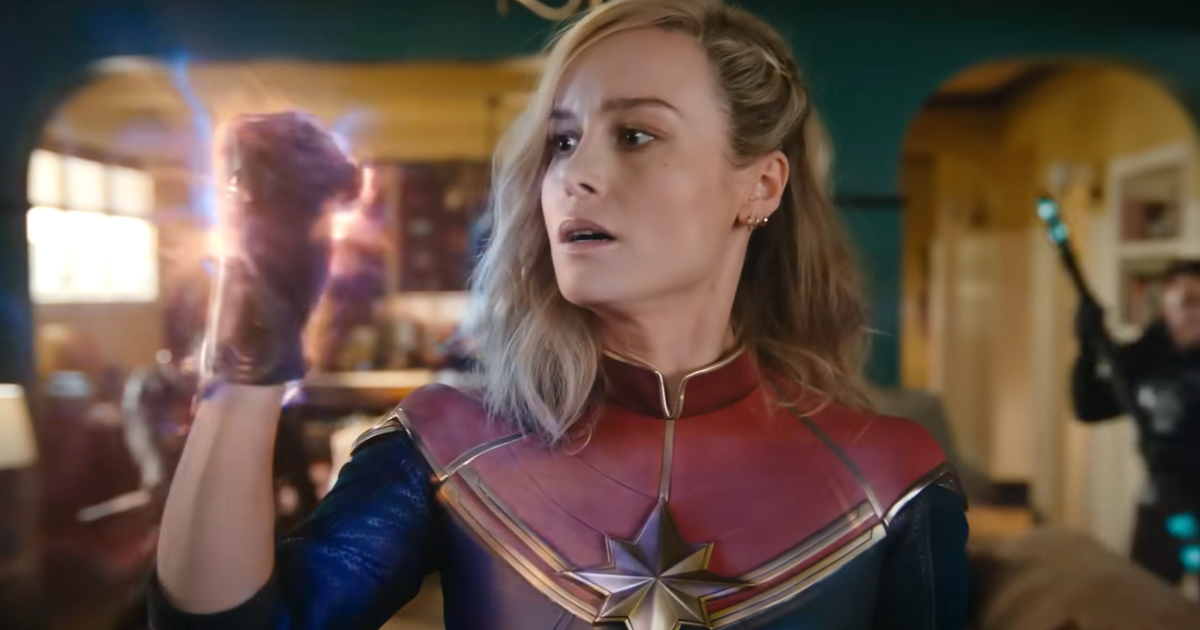Marvel is being forced to slow down in producing their MCU content and fans are already feeling the effects with the ongoing Phase Five.
Apart from the ongoing WGA and SAG-AFTRA strike, Phase Five of the Marvel Cinematic Universe has another reason for taking its time to put out theatrical and streaming projects.
You may have heard of the Superhero Fatigue, right? Marvel Studios President Kevin Feige had even debunked it a couple of times in his past interviews that the billion-dollar franchise would never suffer from it.
Feige had always claimed that Superhero Fatigue wouldn't happen to Marvel, considering that they still have a full list of heroes and villains waiting to debut on the big screens.
However, he has failed to realize that the Superhero Fatigue goes both ways. Here's why the MCU franchise has grown dull over the years.
YOU MIGHT BE INTERESTED: Marvel Isn’t Doing Death The Right Way
What is Marvel’s ‘Superhero Fatigue’? Explained
Kevin Feige defines Superhero Fatigue as practically ‘non-existent’ for the MCU franchise. According to Marvel’s big boss while speaking on The Movie Business Podcast previously, here’s why their movies won’t suffer:
“I’ve been at Marvel Studios for 22 years now, and from probably my 2nd year at Marvel, people were asking, ‘Well, how long is this going to last? Is this fad of comic book movies going to end?’ And I didn’t really understand the question. Because, to me, it was akin to saying after ‘Gone with the Wind,’ ‘Well, how many more movies can be made off of novels? Do you think the audience will sour on movies being adapted from books?’”
Superhero Fatigue is more about how the audience’s divisive reception is continuously caused by the repetitive tendencies of superhero stories being told on the big screens.
Back then, when Marvel was still making its way to the cinematic scene starting with Robert Downey Jr.’s Iron Man, it was to build the ever-growing Marvel Phases that the franchise eventually got ahold of.
However, the more comic book heroes get adapted into live-action, the more moviegoers realize just how repetitive and very much alike the origin stories and solo debut films are.
If you think about it, they usually stick to one formula, which is not to say it’s terrible, but it can’t be denied that this is one of the reasons why Superhero Fatigue persists.
Besides, you also have to take into consideration that fans are on the receiving end, which means, no matter how many movies Marvel could release over time, as long as the viewers aren't interested, the plan would still flop.
While this could also pertain to other reasons such as simply growing out of love and passion with superhero movies in general, the Superhero Fatigue may very well include robbing others of the immersive cinematic experience of not knowing what happens next.
ALSO READ: Why Do Marvel Movies Have Post-Credits Scenes? The Big MCU Gimmick Explained
Every MCU fan is well aware that the greatest thing about the MCU ended in Avengers: Endgame.
This is simply because the majority of MCU fans have been rooting for the franchise from the very start of it all.
To witness cinematic history come alive on the big screens, what with the biggest and most anticipated crossovers of every Marvel hero in existence fighting together against Thanos, it’s going to be hard to top that.
There are two main reasons for the MCU's sudden decline:
MCU Stories Have Become Repetitive
While we do get that there’s a specific superhero formula that must be followed, it’s always been the same progression: the protagonist lives a normal life and encounters something out of the ordinary, which would lead them to become a superhero.
As a superhero, they end up contemplating the responsibility and risks behind it. Most run away from it, while others end up embracing it.
Once they make their first fall, they get the courage they would need and defeat the enemy they're facing. They get a happy ending.
This often leaves moviegoers unsatisfied with the results, and some, barely remembering the existence of the hero they didn't get to know that much.
Let’s not forget, the repetitiveness here also stems from how many of the upcoming films are also still a part of a sequel or a trilogy (Avengers: The Kang Dynasty, The Marvels, and Captain America: Brave New World).
MCU Films Have Grown Dependent on Cameos
Of course, who could forget? Playing on nostalgia is not a new thing in franchise movies. It still feeds moviegoers into seeing the film simply because of old characters returning.
Example films like this include Spider-Man: No Way Home (Peter Parkers with their iconic villains in alternate realities), and Doctor Strange in the Multiverse of Madness (Reed Richards, Peggy Carter as Captain America, Professor X, Maria Rambeau as Captain Marvel, etc.).
Do consider that Avengers films are highly likely still going to do this, especially since they usually involve the really ‘big bads’ that would require larger teams to work together.
While there is no exact ‘cure’ to this ongoing Superhero Fatigue, Marvel’s current solution to lessen their production for Marvel Phase Five could help MCU fans get back on their feet.
It’s not a question of the overwhelming quantity Marvel is producing, but the quality needs revamping before they lose their fans altogether.
Hopefully, the constant changing of release dates would earn Marvel more time in improving their upcoming films and series.
For more Marvel content like this, you can read more MCU-related news stories right here on EpicStream!
Explore new topics and discover content that's right for you!







